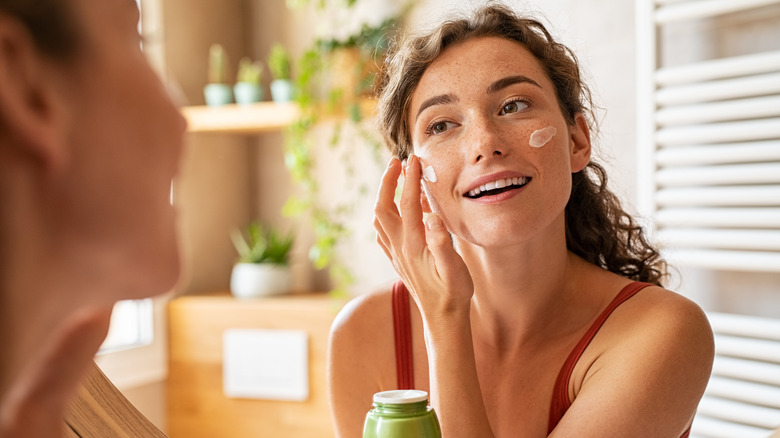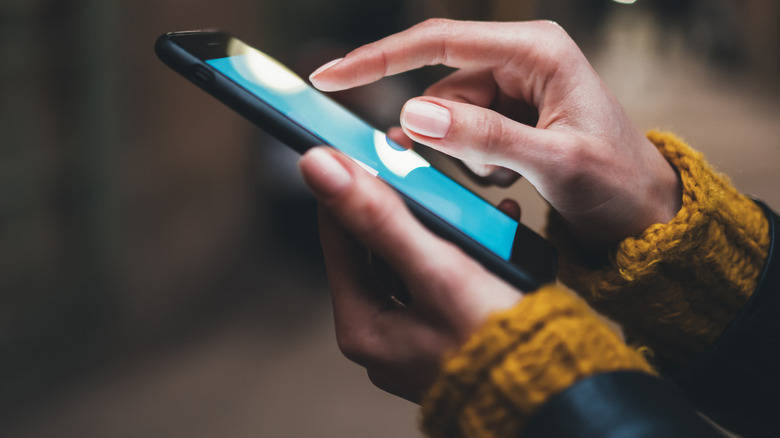Can Skin Care Products Protect You From Blue Light Damage?
YouTube star and gaming streamer Rachell "Valkyrae" Hofstetter is facing backlash for her new skincare line, RFLCT, after announcing the launch of the collection on Twitter this week (via Dexerto). According to Hofstetter, the new collection is supposed to protect users' skin from blue light damage by using ingredients like vitamins and polyphenols to help "boost your skin's defenses."
"It's the skincare collection for everyone who uses a screen," Hofstetter said in the announcement video of the skincare line on Tuesday, October 19 (via Dexerto). "It's designed to protect your skin from blue light that is emitted from all digital screens." While Hofstetter was congratulated on the launch by many of her peers, she also faced significant backlash for her new products, which many people have denounced as fake.
In particular, Twitch streamer Hasan "HasanAbi" Piker had some choice words for Hofstetter's blue-light-blocking collection. "I don't believe a blue light is destroying your skin in the way the RFLCT product presents itself," Piker said on Twitch, going on to claim that the products are just soap. So can skincare products protect your skin from blue light and are they even necessary?
Blue light may not damage your skin
While blue light can certainly take a toll on your vision after years of exposure, it doesn't seem to have the same impact on skin (via Byrdie). It "doesn't appear to be capable of causing sunburn or skin cancer as UV can," Dr. Gary Heiting, an optometrist and member of the Eyesafe Vision Advisory Board, told Byrdie.
In fact, blue light is often used by dermatologists as a type of therapy to treat skin conditions like acne, atopic dermatitis, and psoriasis. It has also been used to treat some types of superficial skin cancer and can even be used to accelerate wound healing. That being said, there is still much that is unknown. In some studies, blue light has been linked with premature skin aging, but further research is needed to determine the long-term effects of exposure to blue light from electronic devices.
"It's unlikely people's use of computers, tablets, phones, and other blue light-emitting devices (including televisions) will decrease in the years ahead," Heiting explained. "And until large, long-term clinical trials can be conducted, it's impossible to know just how much damage these sources of blue light are contributing to aging and disease." That's why it can't hurt to take some preventative measures like limiting your exposure to blue light.

